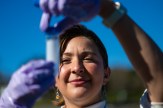The Roux Institute at Northeastern University is a ‘once-in-a-generation opportunity’
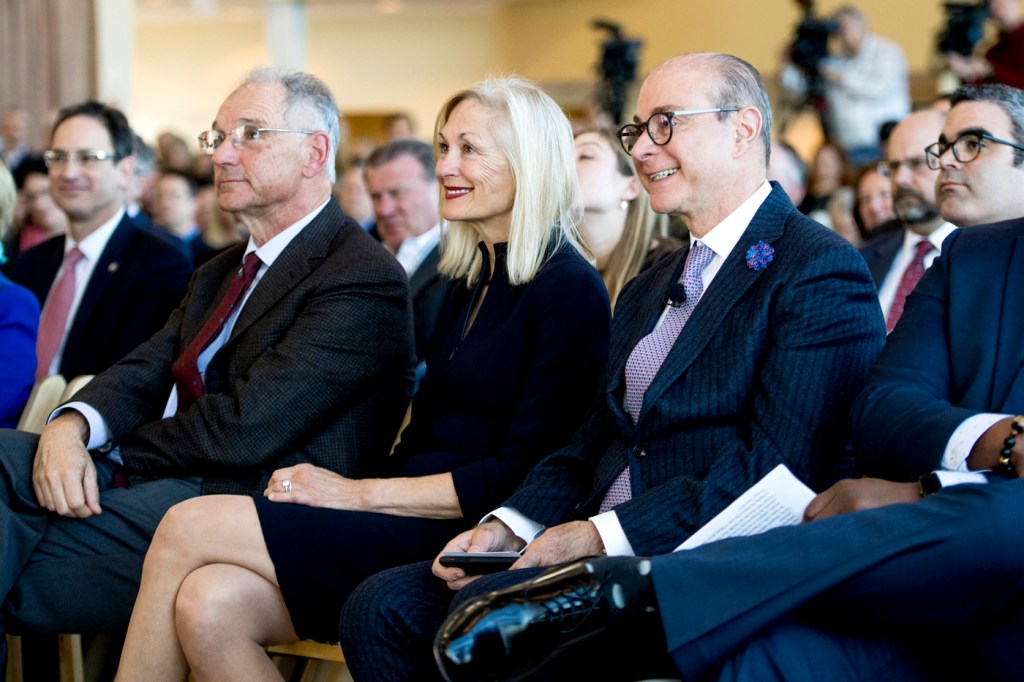
PORTLAND, Maine—Joseph E. Aoun, president of Northeastern, joined with technology entrepreneur David Roux and his wife Barbara on Monday to present the Roux Institute at Northeastern University, an innovation hub that is designed to drive sustained economic growth in a region that dreams of thriving in the digital age.
In a sun-splashed showroom perched on the edge of a scenic pier from which, in another time, Mainers were ferried to Nova Scotia and back, Aoun and David Roux, a Maine native, unveiled their vision of the future for the city, the state, and northern New England to a standing-room crowd of business, government, and education leaders.
The Roux Institute, scheduled to open in the spring, will educate generations of talent for the digital and life sciences sectors. The Rouxs invested $100 million in the university to support the institute’s future activities.
“We’re going to make a massive investment in advanced education and research activities, focused at the most technically-advanced edge of the technology sphere—which is A.I. and machine learning,” Roux said. “If we get that right, we have all kinds of options. We are going to be going for the biggest prize, the brass ring, of technology.”

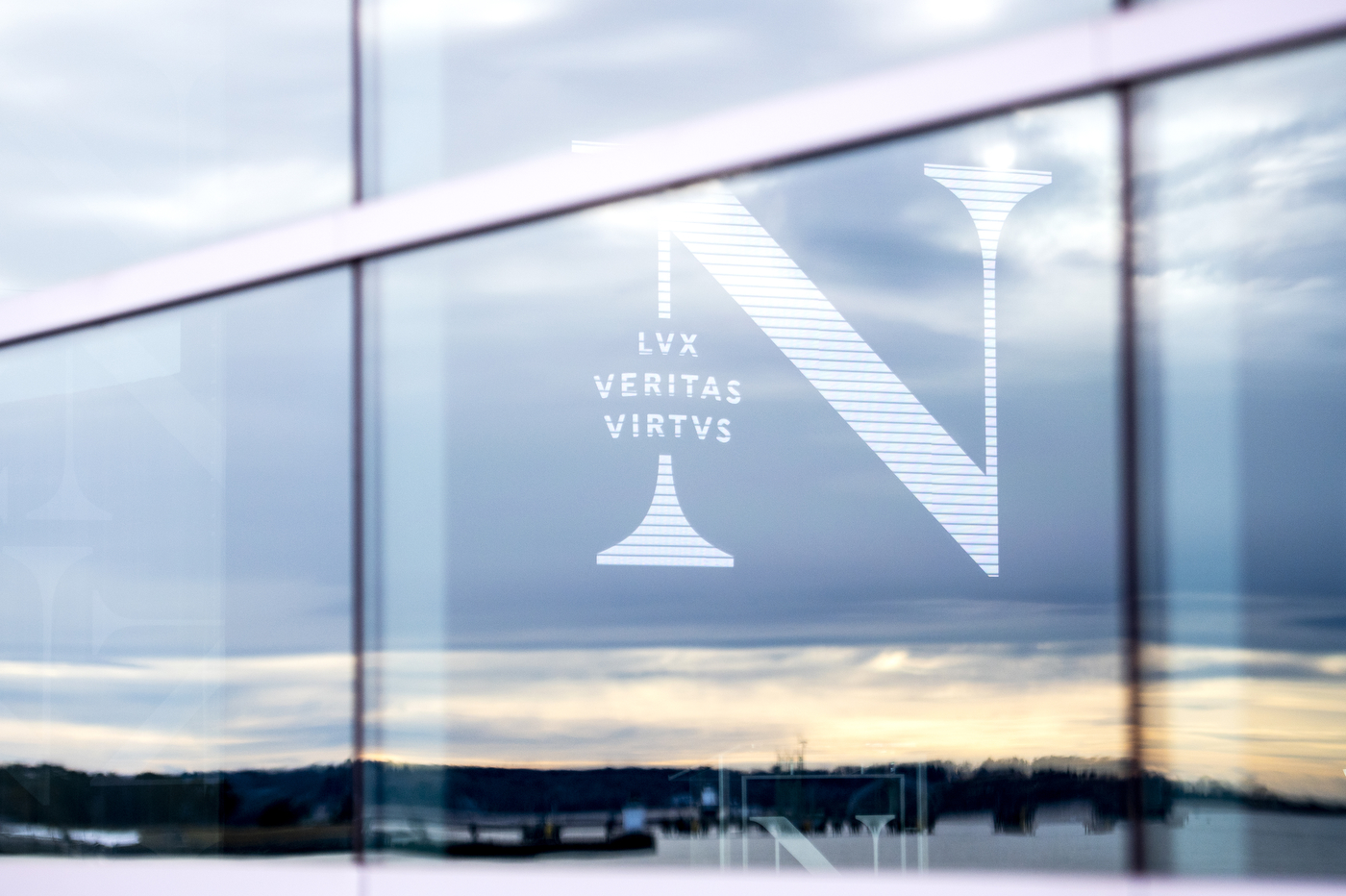
The Roux Institute will provide Northeastern with “a once-in-a-generation opportunity” to chart a new course for higher education, Aoun said. It will educate citizens at all stages of their careers in the skills of the new economy in line with Northeastern 2025—a blueprint for lifelong and experiential learning that liberates students from outdated career models and gives them the opportunity to prosper over the course of their lives.
The institute will also serve as a digital and life sciences nexus that will enable Maine-based companies to get up to speed in the digital era, encourage U.S. businesses to relocate their operations to the state, and generate startup companies.
“When they first approached us,” Aoun said of the Rouxs, “we had to learn and re-assess many things that we had been doing. No university is self-sufficient. No university has it all. In order to further this budding ecosystem, we need to work together.”
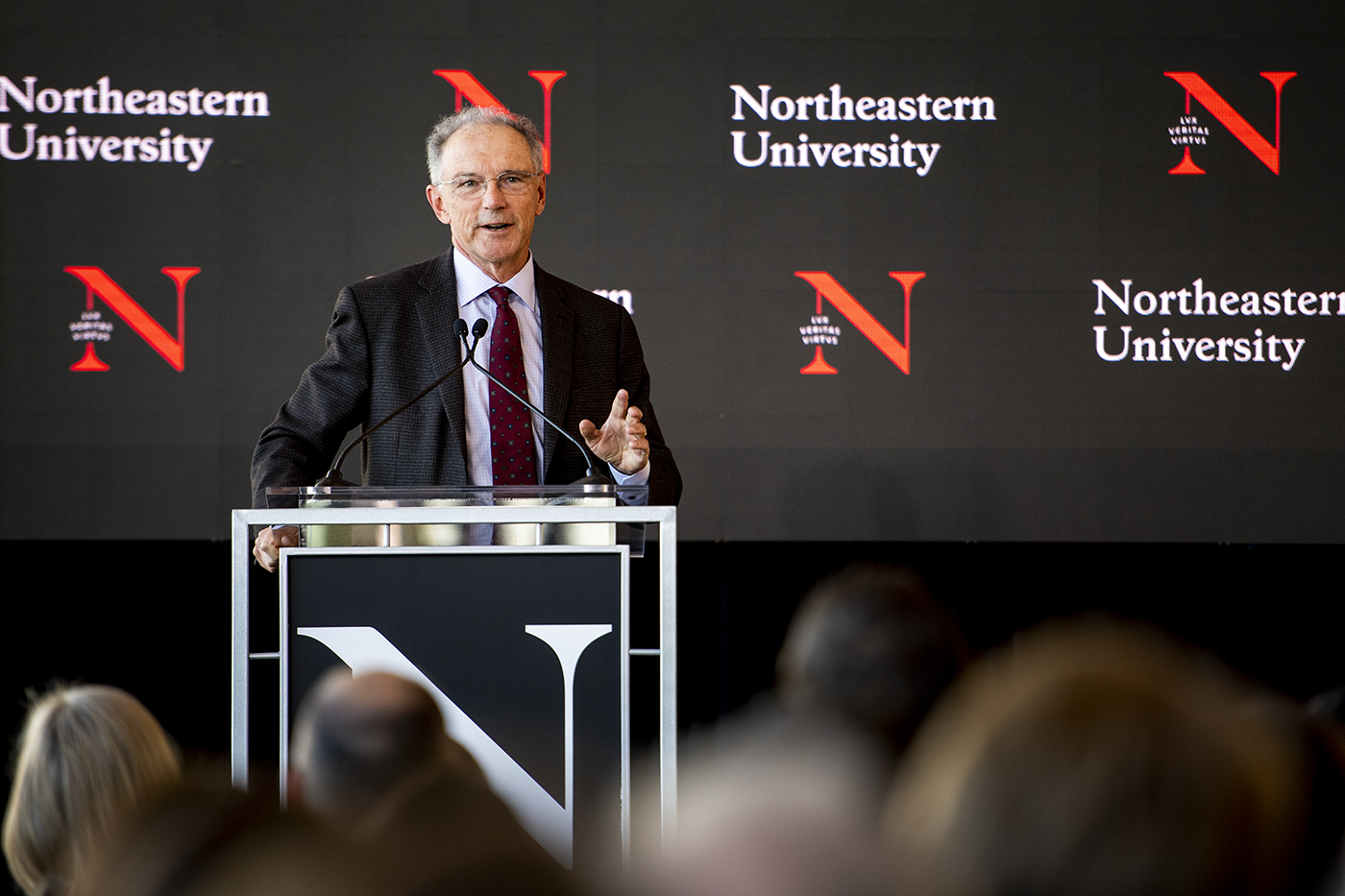
The goals of the institute are aligned with the economic plan for Maine that was announced last month by Governor Janet Mills, who has vowed to add 75,000 jobs over the next 10 years.
“This will be an anchor and attraction to people from far and wide, and we welcome that,” Mills told the attendees at the event Monday. “This is a shot in the arm that will help us stabilize our economy over the long term. This institute will bridge the workforce gap that we recognize, and it will attract businesses that are in search of skilled workers.”
Roux joined other speakers in referring to the natural resources that supply their state with its timeless identity. They gestured for their audience to take in the view as the morning clouds gave way to coastal sunshine, brightening the gray tranquility of the harbor, home to Portland’s erstwhile economic powerhouse, its fishing industry.
“The future is not going to wait,” Roux said. “It is marching, it’s just absolutely marching along. And so we take the view that the most important thing that we can do is to get ourselves in gear, start immediately, and move quickly.”
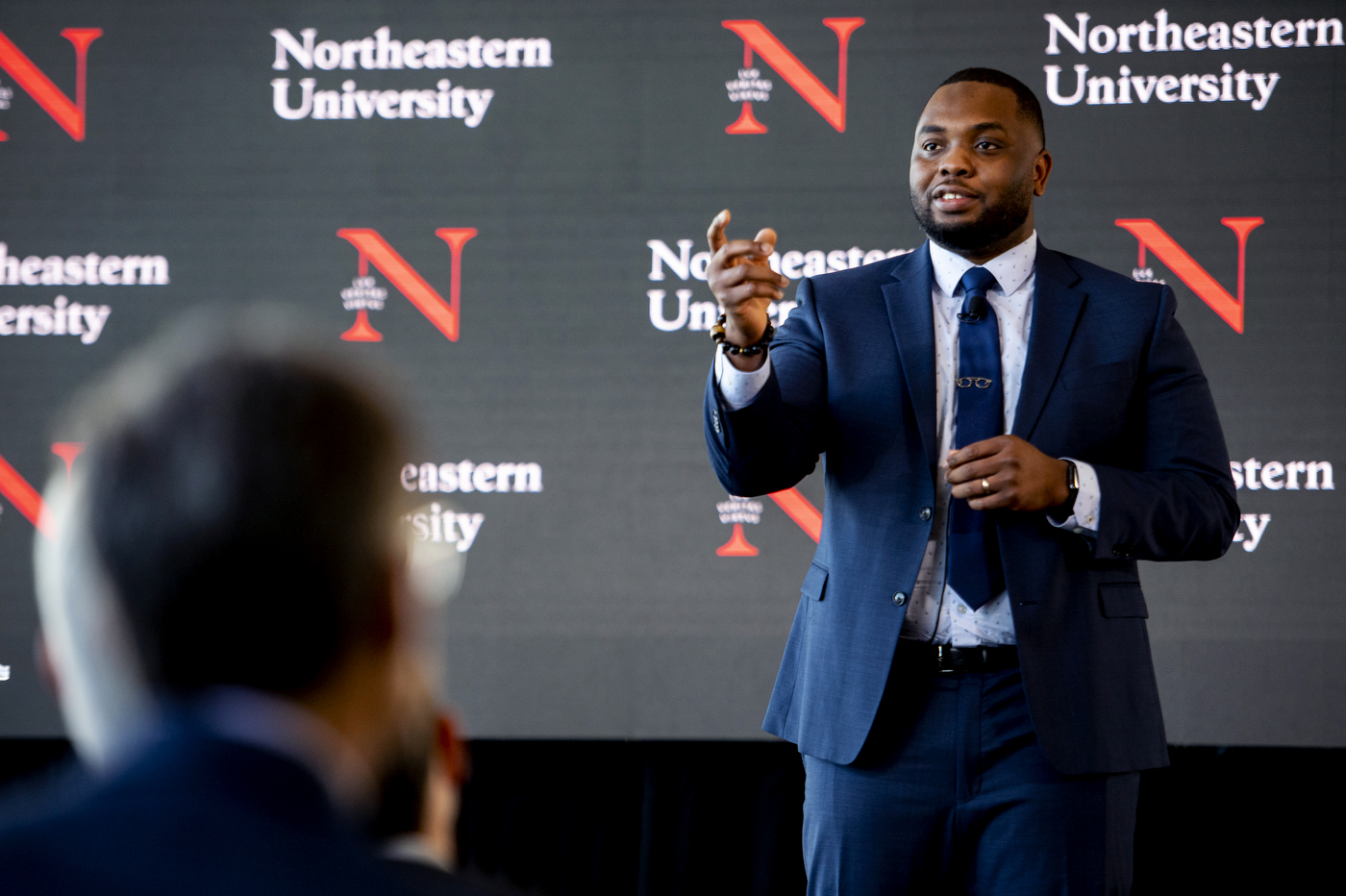
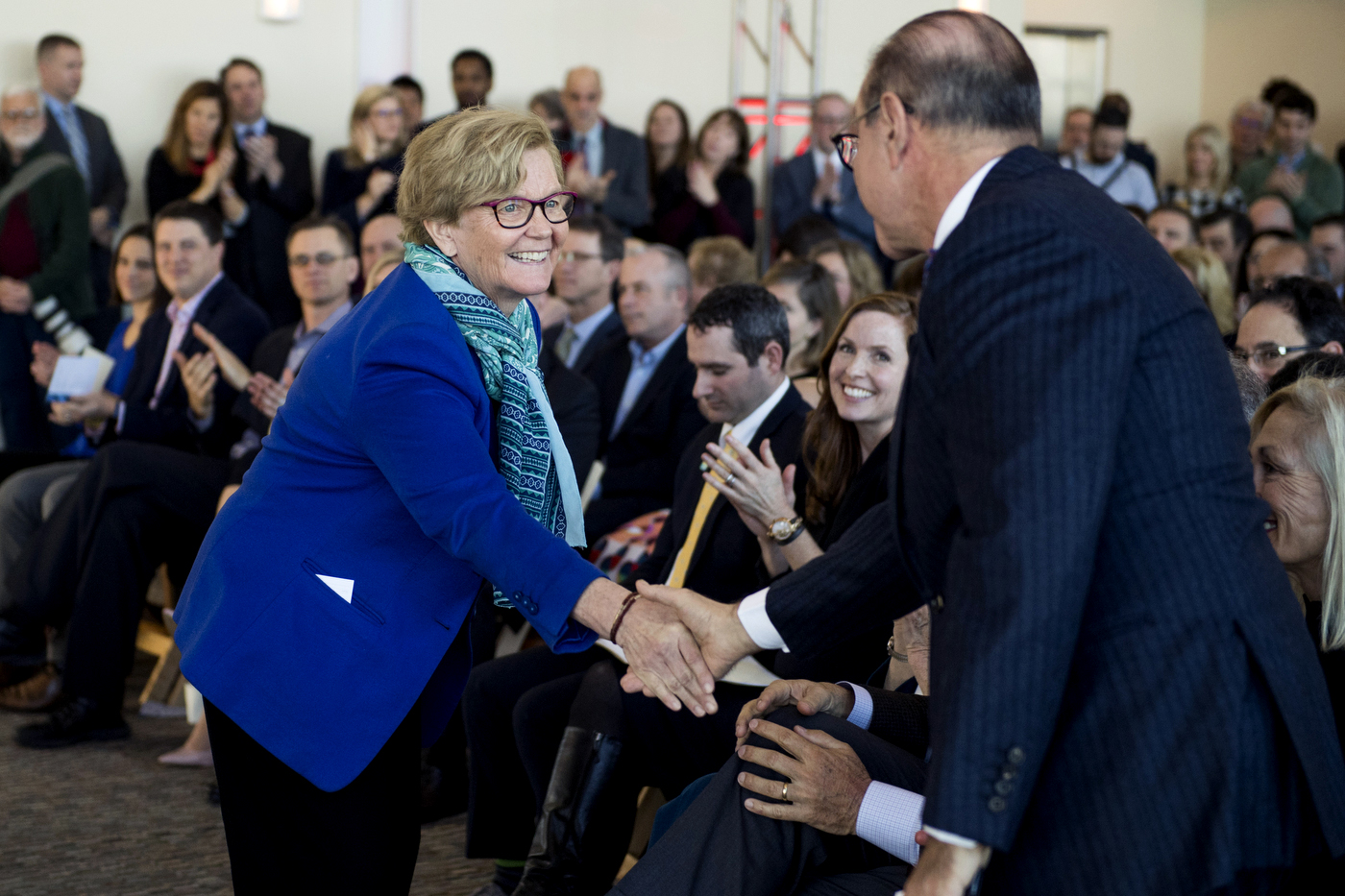
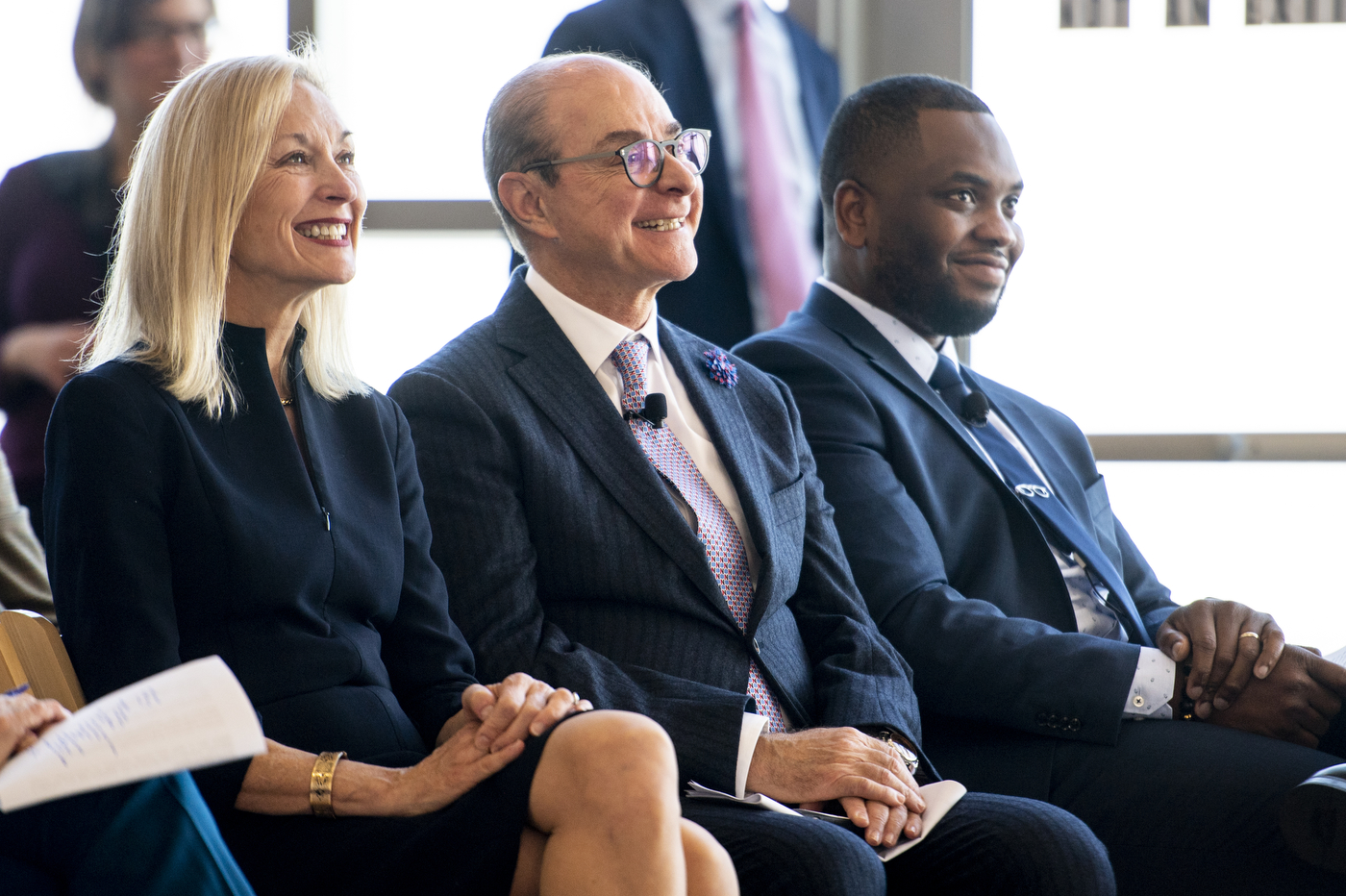
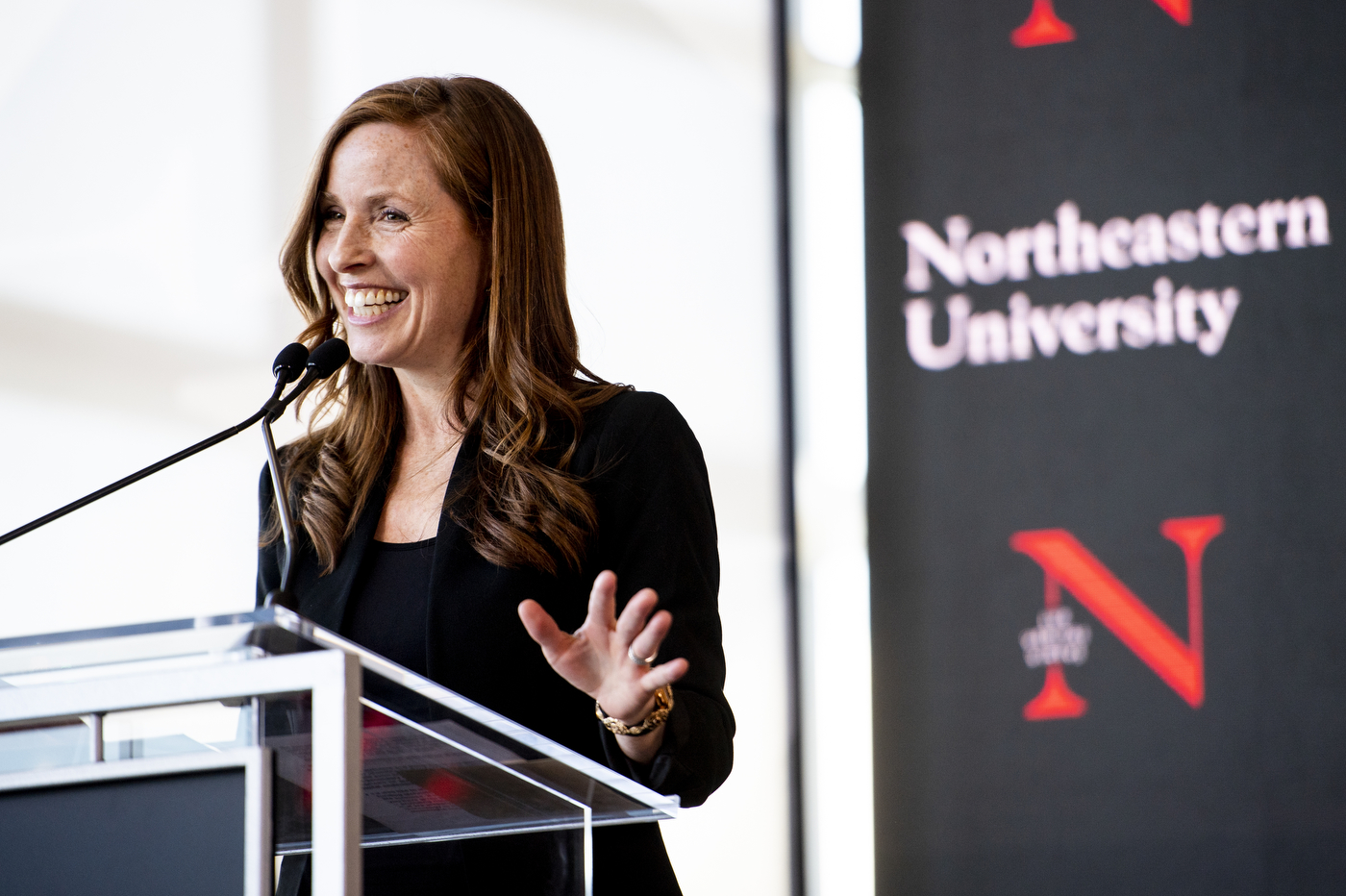
The institute’s goal is to transform Portland and the state into a sprawling hub of innovation. It is an attainable goal, said Roux, who pointed out that Silicon Valley—ground zero for the digital era—had been associated primarily with agriculture as recently as a half-century ago.
The Roux Institute’s 10 founding corporate partners expect to benefit as soon as this summer, when existing employees will begin their pursuit of graduate degrees and certificates at the institute’s temporary headquarters. (Roux said that the institute will build a permanent location within three years.) Both Roux and Aoun emphasized that success will depend on a growth of support by businesses throughout Maine and across the U.S.
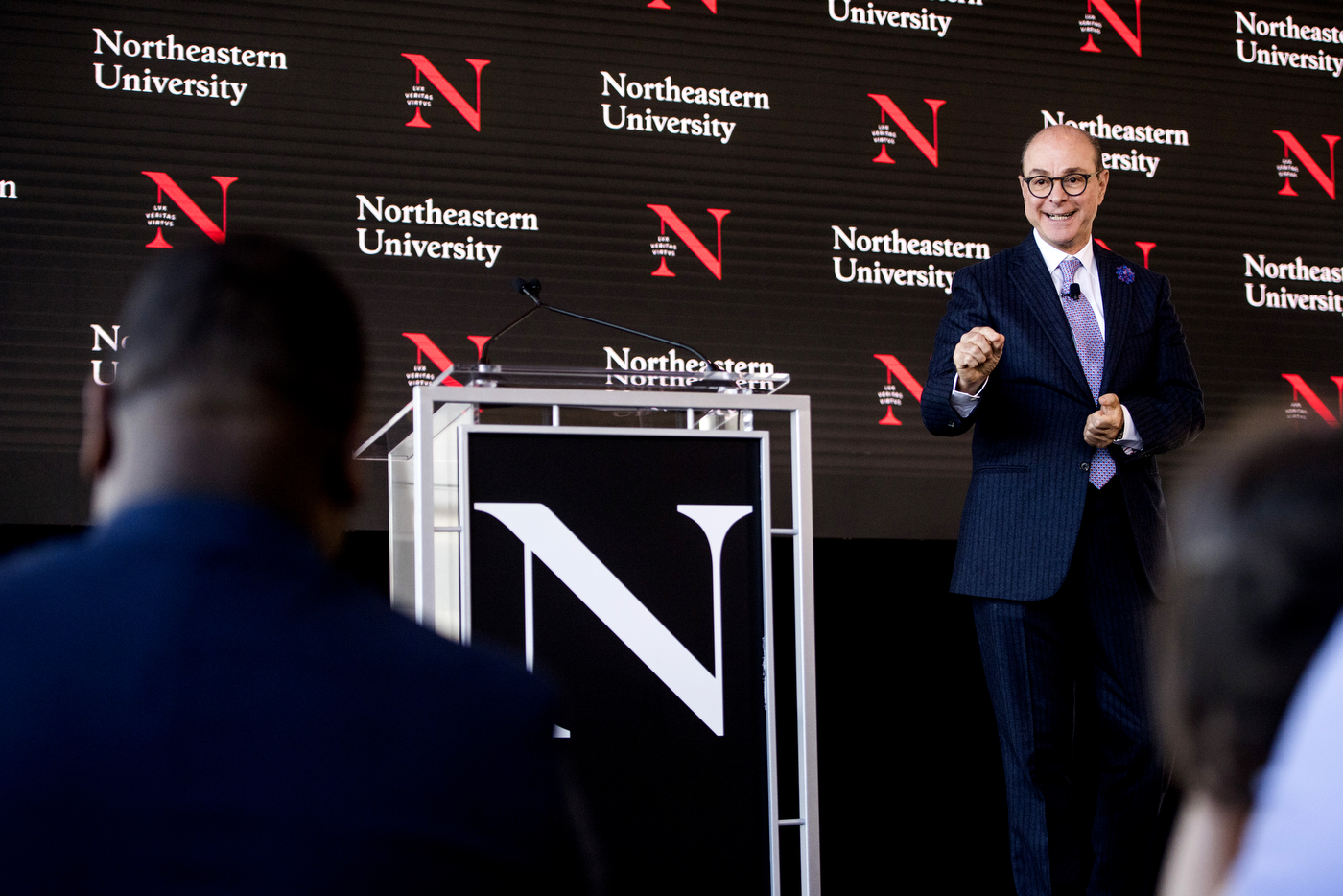
By educating employees and students here in Portland, said Josh Broder, chief executive officer of Tilson, one of the founding corporate partners of the institute, the hope is that talent will remain in Maine and contribute to the growth of its digital economy.
“Oftentimes, we have to look outside of Maine for critical educational opportunities that are necessary for employees to transition within their career from the thing they’re doing now to the thing they want to do,” Broder said. “The problem when they transition to graduate school in another place, is that they will often find work in that other place.”
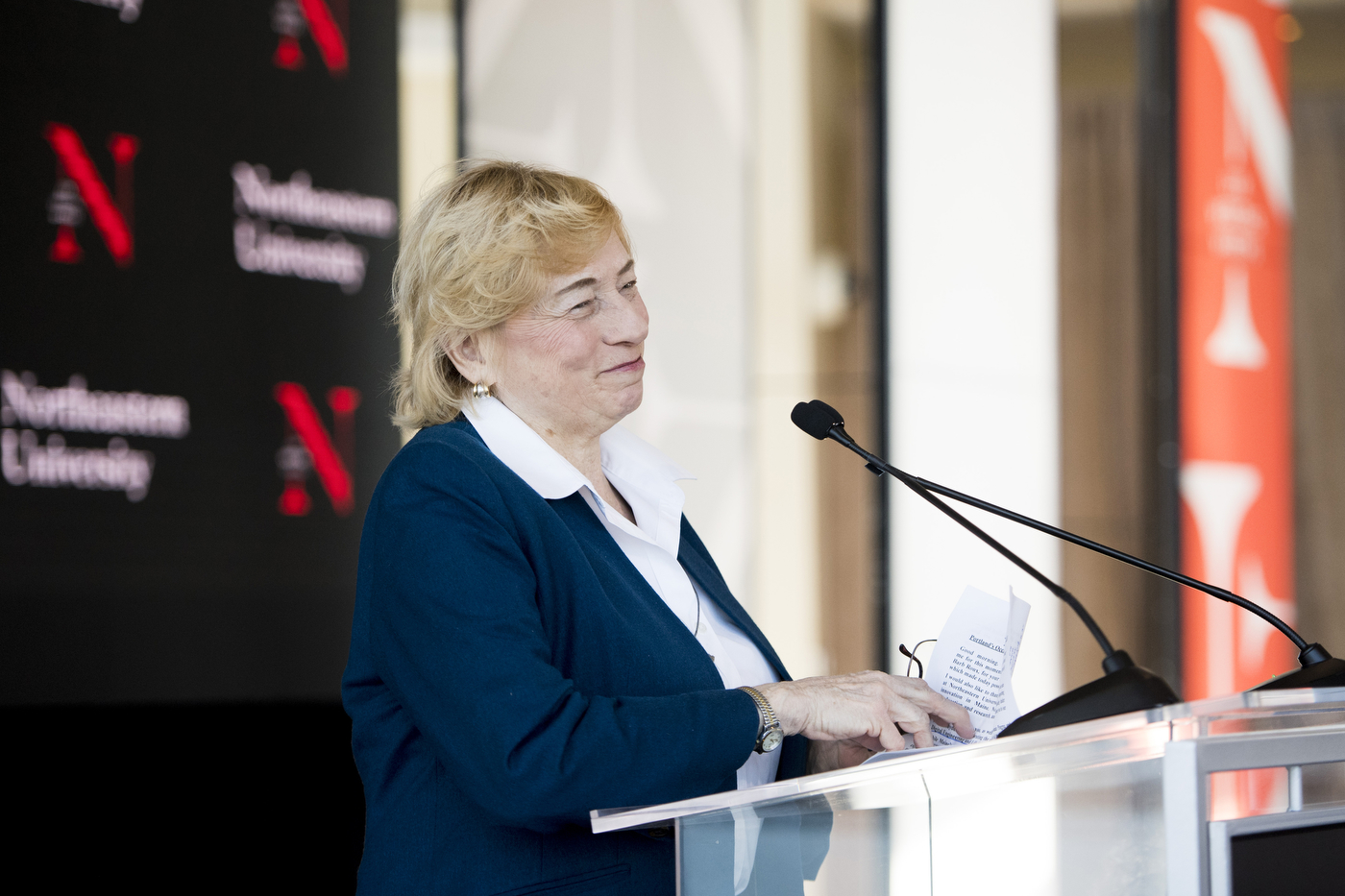
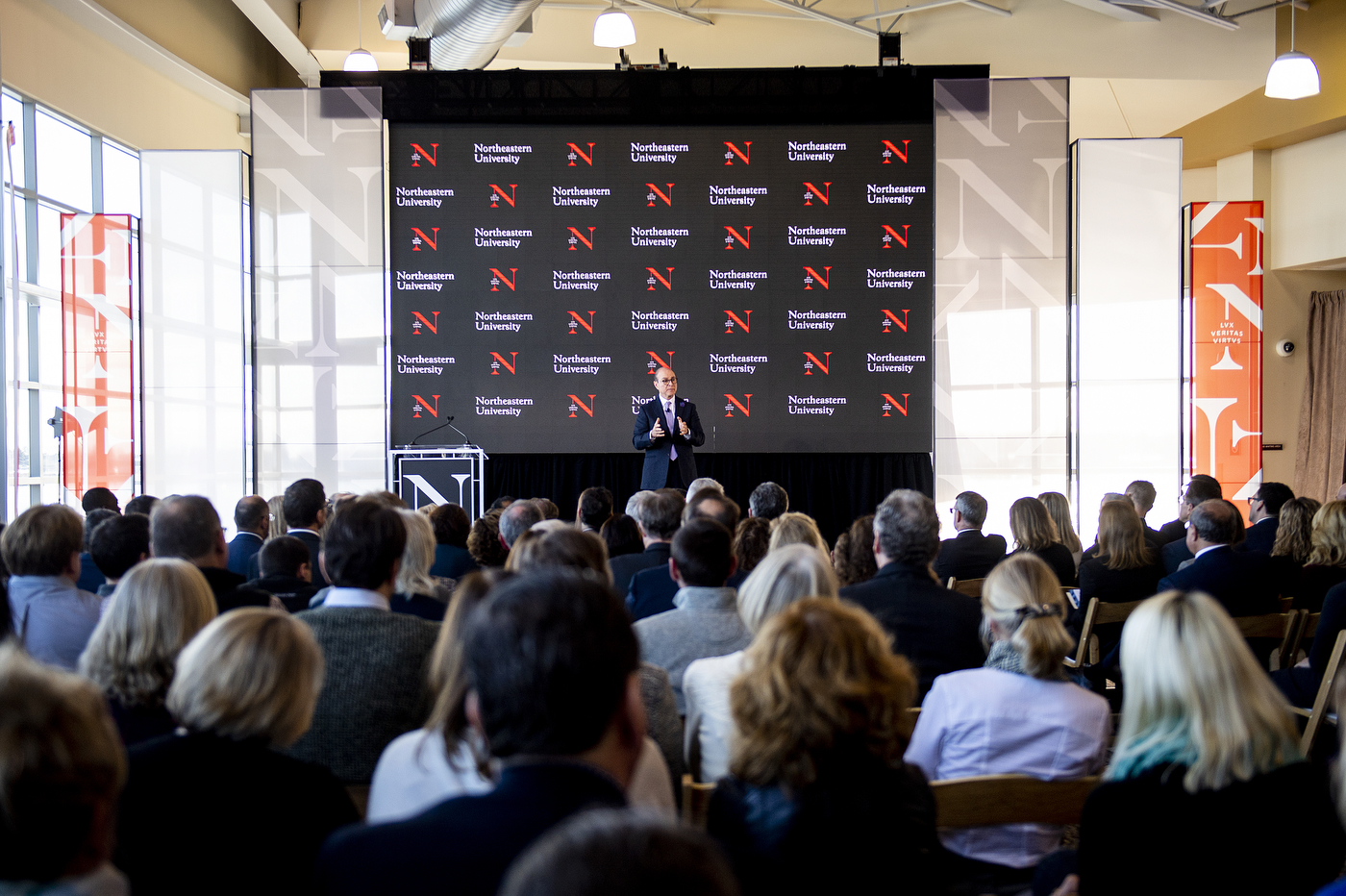
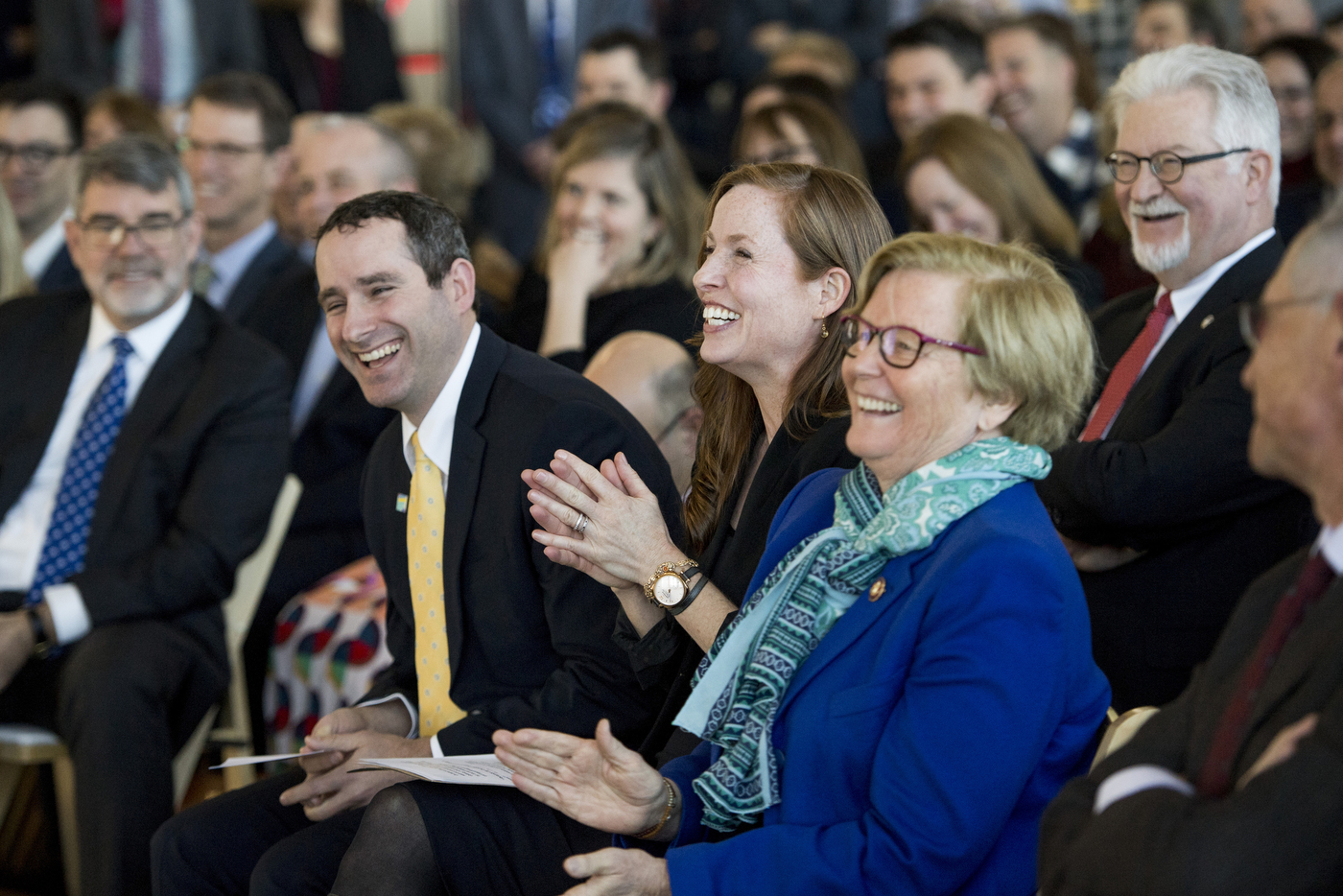
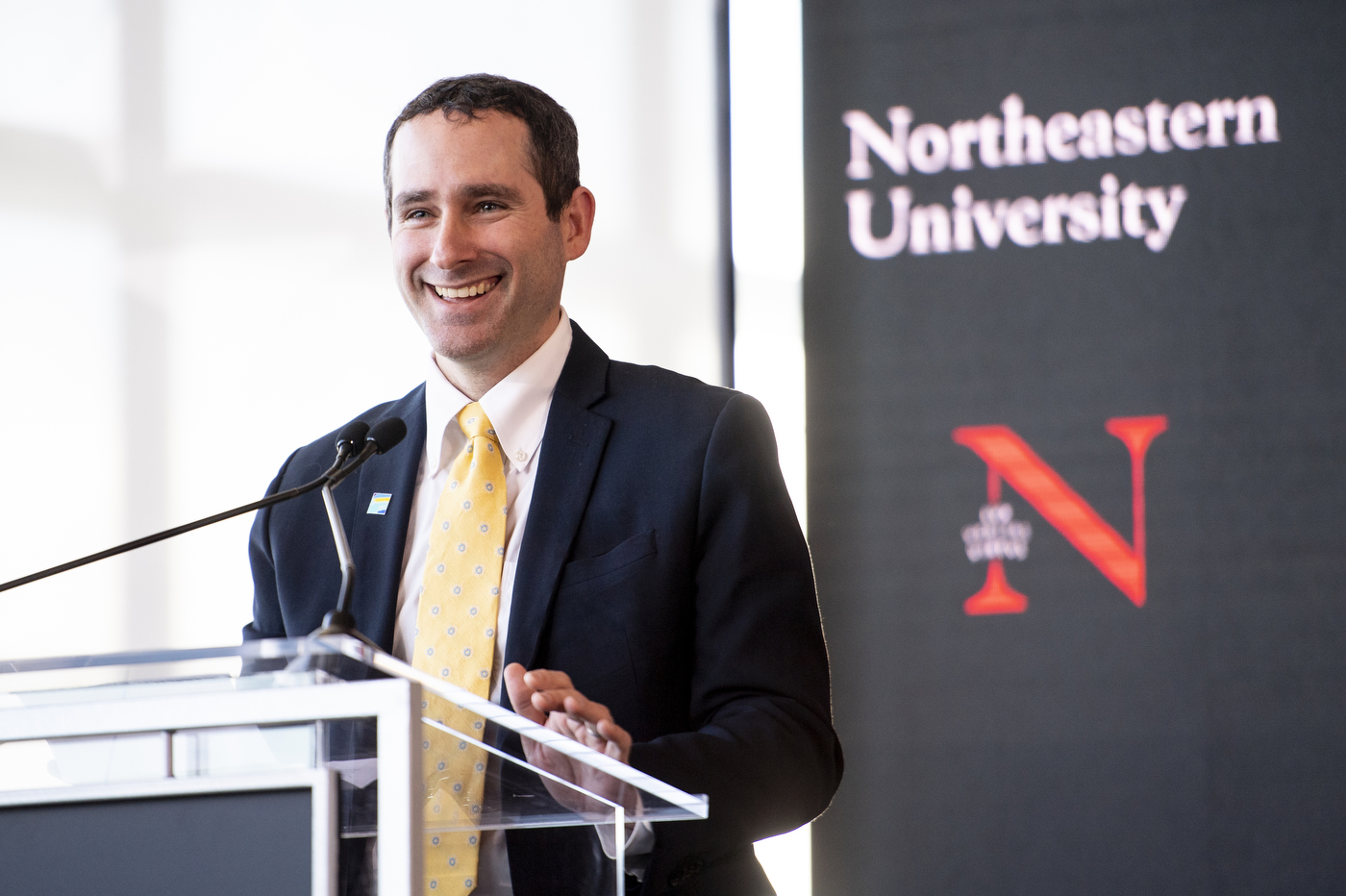
Even though the institute’s founding corporate partners have been running successful businesses—over the past year they’ve experienced growth of 15 percent, said Roux, which is twice the rate of the S&P 500 companies—their involvement in this first-of-its-kind endeavor indicates a broad desire for professionals in artificial intelligence and life sciences.
“We don’t have the right mix of talent,” Roux told his fellow Mainers at the event on Monday. “It’s not a complicated story. We haven’t trained the population to be able to do all of the things that happen at the heart of [high-tech] economic booms.”
After investigating a dozen universities nationally, Roux said that he and his wife formed a partnership with Northeastern because of its “highly entrepreneurial leadership team,” its leadership in experiential learning, and the network of campuses it has opened in the U.S., U.K., and Canada.
”I like to think of them as an elite institution that’s not elitist,” said Roux of Northeastern.

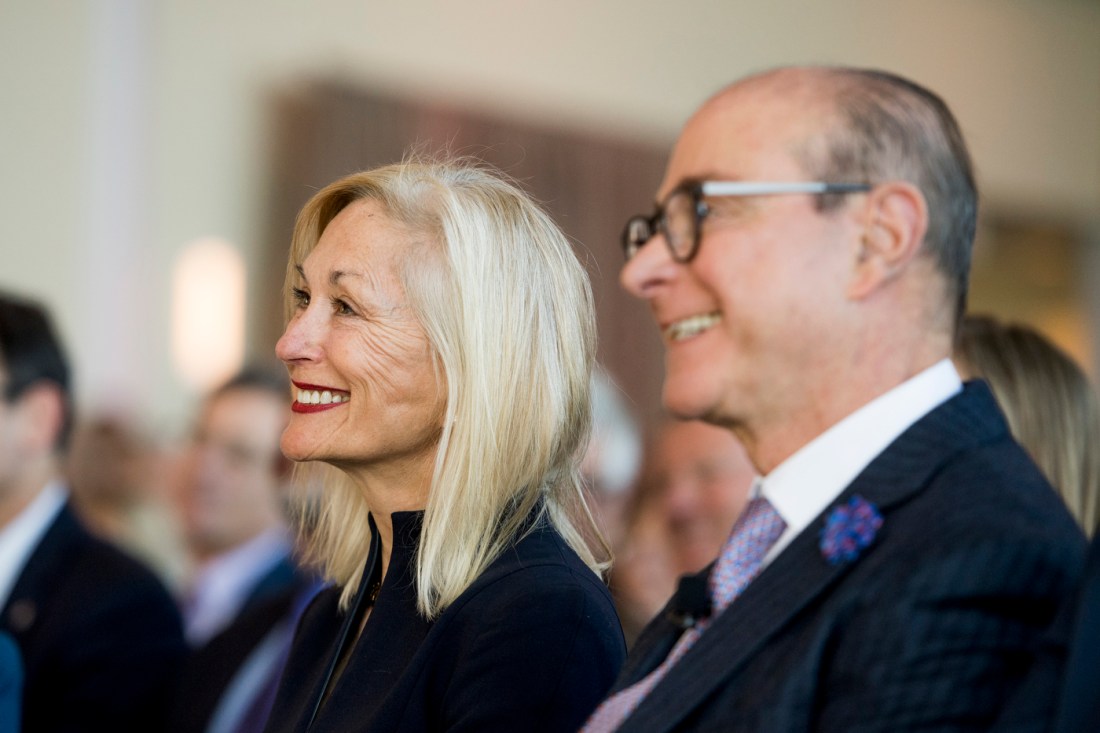
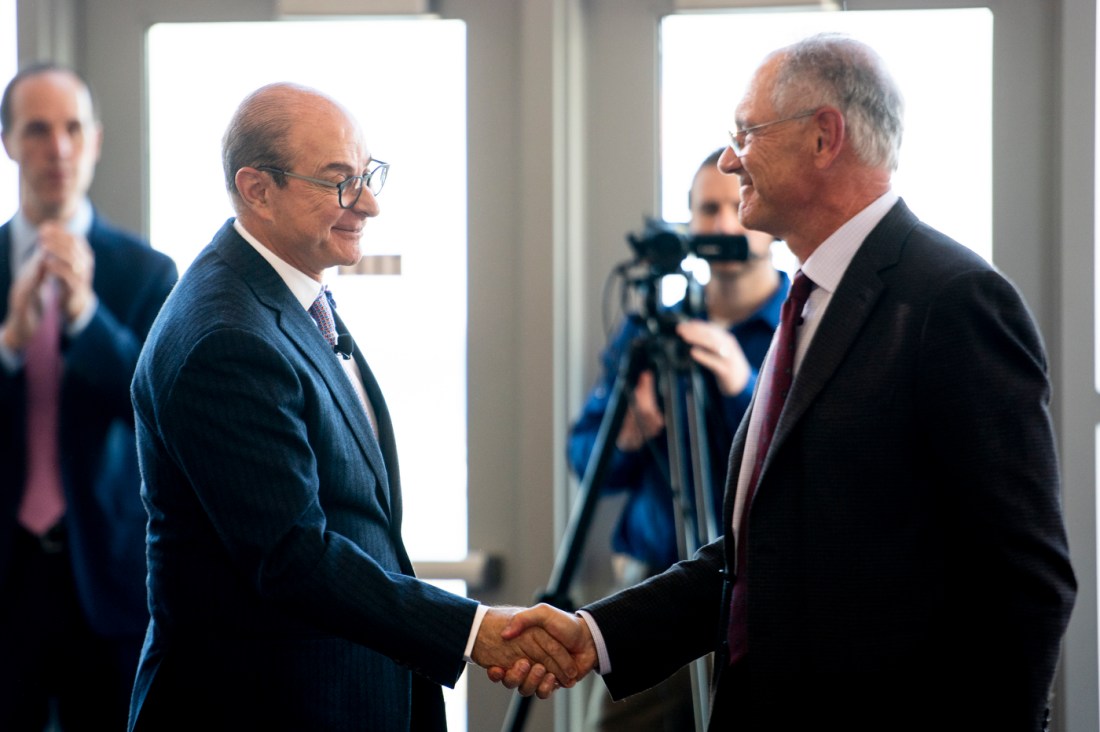
Aoun suggested that the university’s experiences in those locations—in London, Toronto, Vancouver, Seattle, and the Bay Area; in Charlotte, North Carolina; and in the Massachusetts cities of Boston, Nahant, and Burlington—made it possible to expand in a new direction.
“Maine and Portland are different,” Aoun said. “Different in the sense that we did the easiest thing in those other locales. We went to the places that already had an ecosystem for technology, for research. And here we are in a place that has the desire to increase what it already has. It is a place that is poised for the future.”
“One of the things that is most discouraging is that we are often the victims of our own inferiority complex,” said U.S. Rep. Chellie Pingree of Maine. “We remember when there were mills everywhere, when we were the textile and shoe producers, when we had a bountiful fishing industry—when so many things were going our way. And then over time we lost it all. And sometimes we may think we’ll never get it back, we’re at the end of the line and no one will ever come here, we’re just going to be lost and forgotten forever.
“What you’re doing today is exactly what we needed to have happen,” Pingree said. “I am here to celebrate a lot of lucky students and lucky learners who are going to be part of this program in the future.”
The emcee was Gimbala Sankare, a Northeastern graduate who serves as director of diversity and inclusion and early career pipeline for WEX, one of the institute’s founding corporate partners. Portland Mayor Kate Snyder joined the other speakers in noting that an investment was being made in Portland and in Maine for the long term.
As Aoun made his concluding remarks, he invited David and Barbara Roux onto the stage to receive a standing ovation and to unveil the Roux Institute logo.
For media inquiries, please contact Shannon Nargi at s.nargi@northeastern.edu or 617-373-5718.


